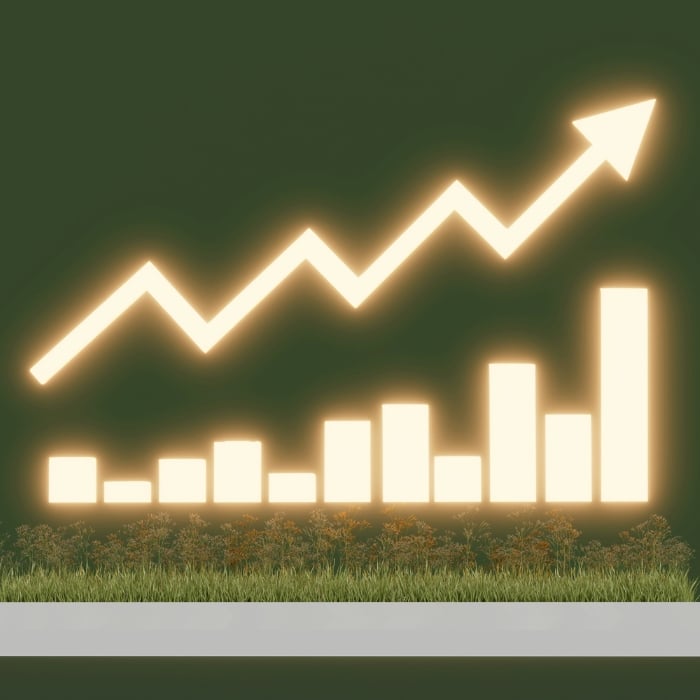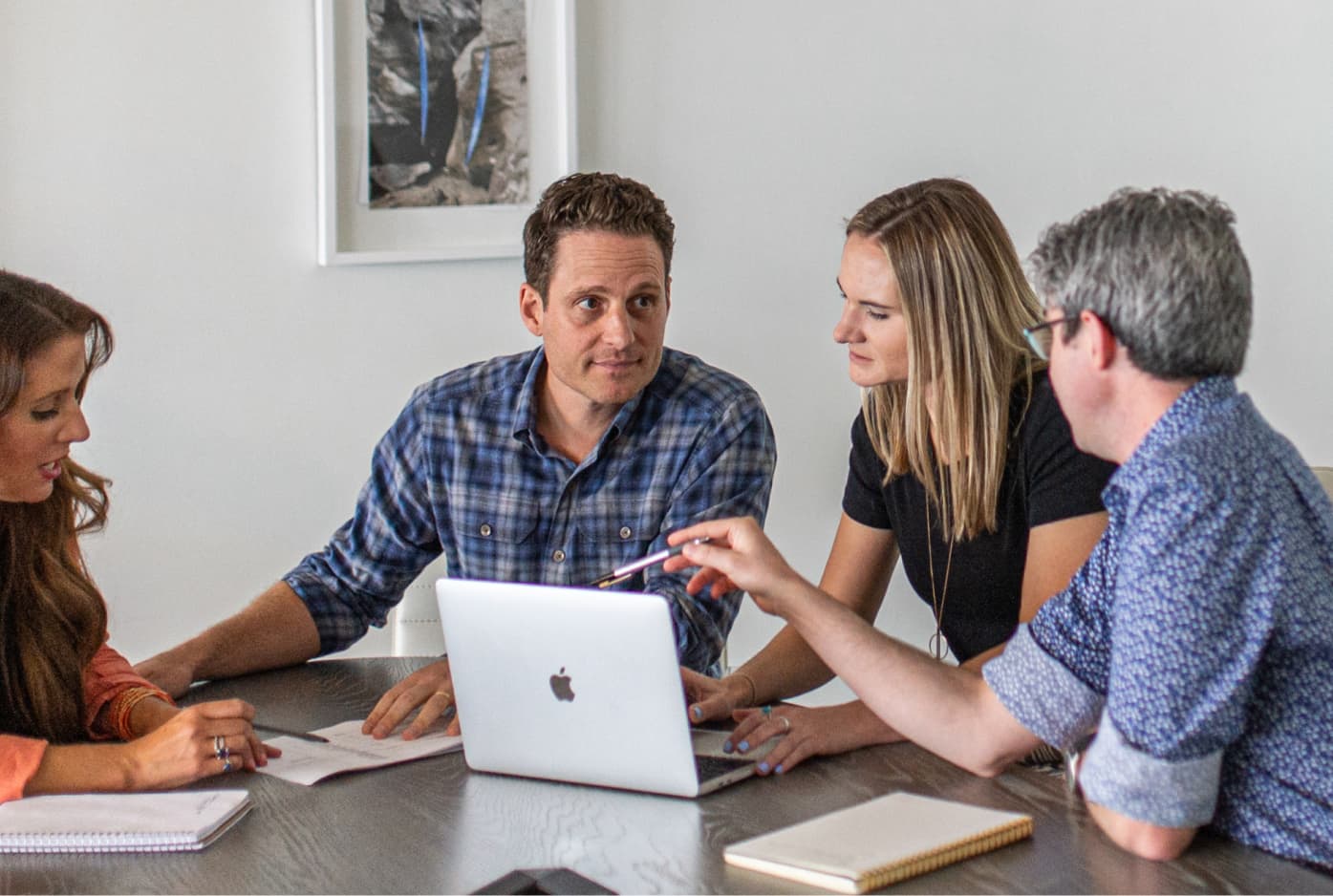
Building a Better Internet: Is It Time to Go Beyond SEO?
Nov 10, 2023|Read time: 9 min.
On November 1, 2023, The Verge released an article titled “The people who ruined the internet,” suggesting a growing perception that “Google isn’t as useful anymore.”
According to author Amanda Chicago Lewis, “a lot of folks are unhappy, in 2023, with their ability to find information on the internet, which, for almost everyone, means the quality of Google Search results.”
Lewis outlines a litany of complaints, painting an unflattering picture of the search engine’s result pages. She then sets off to find out who’s responsible for the current state of the internet: Google, or SEOs, who she humorously describes as the “people who annoy the rest of us for a living.”
While Lewis ultimately comes around to acknowledging that SEOs have “a lot less agency” than she first thought, the article has sent waves throughout the community.
Rather than looking to place blame, perhaps we can look toward the future. How can we, as members of a shared digital community, create a better place to search?
What is SEO, anyway?
In her article, Lewis offers a definition of “the mysterious art of search engine optimization, or SEO,” simplifying it as telling the algorithm “whatever it needs to hear for a site to appear as high up as possible in search results,” where Google then “lures” people into a land of ads.
Lewis then introduces a stereotypical depiction of SEO practitioners as “content goblins” or “megalomaniacal jerks,” portraying the industry as indifferent to rules, morality, and quality in pursuit of profits.
As Clearscope’s Bernard Huang said in a recent webinar featuring Barry Schwartz, Eli Schwartz, and Lily Ray, “The article was written in this kind of cynical, skeptical light of like oh all these practitioners are all gaming the system.”
But as he makes a point to add, “in a lot of ways, that’s what happens when there is a system in the first place.”
Google as a system
While Google is by far (and for good reason) the search engine market leader, most in the industry would also agree they are less-than-perfect in carrying out their own mission and purpose.
As Lewis argues, in spite of Google’s mission to “organize the world’s information” and make it easier to access and use, it’s impossible to “design a free, automated system to help people find information without some people trying to game that system.”
As a business entity, Google has also faced scrutiny for implementing changes aimed at boosting ad revenue, with critics questioning the impact of these strategies on the overall user experience.
As a result, SEOs have long grappled with a sense of limited control over what has been criticized as Google’s dominance and biased algorithms. Who decides what is trustworthy? What is worthy of authority?
But as Lily Ray points out, Google has made great efforts to improve its transparency, and “it’s up to SEOs whether or not they want to take Google’s advice seriously.”
For some, this dynamic may have turned SEO into a game against the machine, but Lewis’ perspective seems to focus on practices that primarily characterized the early days of the industry, a time when the internet was less mature.
As the internet grows in sophistication, consumers spend more time on Google and other platforms. Their behaviors and preferences have evolved. A more sophisticated and complex internet requires both a more sophisticated system of organizing its information and a better way of communicating with that system.
Internet as community
Lewis’ definition also fails to capture the nuanced and ethical approaches of many professionals in the field who operate as people-first partners in a digital community.
In the article, she rhetorically asks, “Why does it always seem to surprise me, even after all these years, that the way we behave on the internet is often quite different from how we act in real life?”
But as most SEOs would likely agree, good SEO work — more often than not — leads to large-scale content consolidation that actually reduces the noise on various domains, working to clean up the internet as a whole.
In a more holistic view, SEOs can be likened to librarians, aiming to organize and facilitate access to information within the vast digital landscape. While Google, in this analogy, acts as the digital library, it is fundamentally different in reality.
While the internet aimed to capture, as Lewis calls it, the ‘spirit of the public library’ in the beginning, replicating the physical experience and community-driven processes of libraries remains a challenge online.
SEO, then, becomes a means of navigating, communicating, and coping with search engine algorithms that are largely out of our control, similar to adhering to a language style guide. The best practitioners prioritize ethical, audience-first practices that connect users with the information they seek.
Marketing VP Chris Long echoes these sentiments in his own response to the article, stating, ”I’ve had way more conversations with people talking about content that’s best for the user, UX and trying to serve the best possible answer.” He goes on to commend Lily Ray, Barry Schwartz, and others, referring to them as “the good stewards of our community.”
All digital content professionals should continue to align themselves with humans — as most have always strived to do — and reinvigorate a collective commitment to making the internet a better place to be.
A tale of two industries
Search engine optimization spans text and technical page elements. This means anyone who writes or creates content for a website is arguably, on some level, also an SEO — whether they like it or not. This includes journalists.
Let’s take a closer look at The Verge article itself.
At the end of her subhead, Lewis hypothesizes a post-Google world, posing a charged and accusatory question: “what happens to the cottage industry of search engine optimization experts who struck content oil and smeared it all over the web?”
Lewis’ headline and its accompanying subhead arguably — and not-so-subtly — err on the side of clickbait, a “classic” practice Lewis associates with SEOs and their perceived “ruining” of the internet.
As Chris Long highlighted, “Of course, there’s a bit of irony that the article points out how SEO is a profit-gaining venture that dampens the digital experience and then proceeds to use click-bait driven headlines, optimized titles for Top Stories and in-article ads.”
In both industries — SEO and journalism — clickbait is generally viewed as a negative, manipulative practice because it can mislead, waste users’ time, and erode trust.
It’s an experience that echoes consumers’ evolving perceptions around the intrusiveness of advertising, a large part of the criticism surrounding Google’s search results.
And this was likely part of the play — a satirical move to hold up a mirror to the industry the author is critiquing. “Maybe I could even repackage such a tragedy into a sensationalized anecdote for a viral article about the people who do SEO for a living,” Lewis writes, winking at us with her words.
The reality is, SEO and journalism both play essential roles in providing valuable, accurate, and trustworthy information to the public. While there are negative practices and impacts associated with these industries, most professionals in both fields are — or should be — committed to ethical and responsible content creation.
So, what does this look like in practice? What will — or should — happen to SEOs and the industry at large? How do we, as Lewis playfully puts it, “keep the party going?” And who’s invited?
A call for evolution
The article portrays the idea of making a better internet as an idealistic notion. But as long as the industry remains committed to enhancing access to information and usability, with a steadfast focus on the people seeking that information, SEO will always serve a purpose. It just might not always look the same or go by the same name.
SEO practitioners, journalists, marketers, and other digital content professionals shouldn’t be afraid to remain critical of Google, or any system we operate within—or to acknowledge our collective impact. We also shouldn’t be afraid of a world without Google as we know it today.
Equating the internet with Google limits our ability to be more holistic in our perspective when it comes to serving searchers, and to imagine alternative approaches to SEO.
The digital landscape is dynamic and diverse, with users exploring various channels and platforms to find information. Google is one channel among a variety of places where users are searching for answers.
And despite their quality rater guidelines, algorithm updates, and more recent transparency efforts, satisfying the diverse needs and preferences of today’s users remains a challenge.
Being authentically audience-first
Lewis’ cynical hypothesis—that SEO “seems to have successfully destroyed the illusion that the internet was ever about anything other than selling stuff”—arguably reveals more about the changing needs and preferences of today’s information seekers than it does about any specific search engine.
The internet doesn’t have to serve as a one-stop shop for transactions.
As Lewis quotes from The New Yorker, people perceive much of the content they see as superficial as it’s frequently shaped by the rules of a specific channel, or underhandedly transactional. Everyone is over being interrupted and sold to, especially when we’re not even looking to buy or engage at all.
In today’s AI and empowered consumer era, the focus must shift from disruptive, undesirable practices to creating authentic content that genuinely helps humans, connecting them with whatever they need—nothing more, nothing less.
Content practitioners of all kinds should seek to be audience-first, always.
Redefining SEO
As Terakeet evolved from primarily working with challenger brands to developing enterprise SEO programs, our content, UX, and tech teams would consistently come together to collaborate on user-centric approaches while aiming to minimize compromises made for the sake of search engine visibility.
During this transformation, it was clear that the ‘if you build it, they will come’ theory didn’t hold, particularly for market disruptors. And as we move deeper into an AI-generated online world, the importance of human-centric, value-driven content becomes even more pressing.
Because what’s authoritative, what constitutes “good” or “valuable” or “trustworthy” information, is highly subjective — and can really only be determined by the person seeking it, not an algorithm. Beauty is, after all, in the eye of the beholder.
Connecting with OAO
Our approach to enterprise SEO evolved in a way that consistently harmonized and consolidated disparate content efforts. This led not only to performance results but, most importantly, to positive audience outcomes.
Through reflection and a deeper understanding of our shifting landscape, Terakeet decided to move beyond SEO. We could no longer ignore the intuition to innovate beyond an algorithm-focused strategy. Today, we call our approach owned asset optimization, or OAO.
Where traditional SEO focuses on improving visibility in search, OAO takes an owned asset-first approach to optimizing content, using channels primarily as sources for consumer intent insights. Here, channels inform instead of drive.
OAO asks us to shift away from chasing algorithms — which invite gamification — and build the most authentic, helpful experience across a curated network of consumer-driven content. So, no matter where we search, we’re taken care of.
OAO may not sound that different, but by moving away from fixating on any given algorithm, we free ourselves to focus on what we control. This empowers us to craft the most robust and impactful experiences for our audience.
OAO 101
The Intro Email Course
A more helpful internet
No matter our role — user, SEO, journalist, brand, whatever — we should operate as partners in building a more helpful, people-driven internet. “Because,” as Lewis writes, “I, too, use Google. I, too, want reliable and relevant things to come up when I look through this vast compendium of human knowledge.”
If we agree that, beyond platform rules, actively listening to users is crucial — and if we recognize that we’re essential members of the broader digital community and act accordingly — we can all play a part in making the online world a better place to search.




